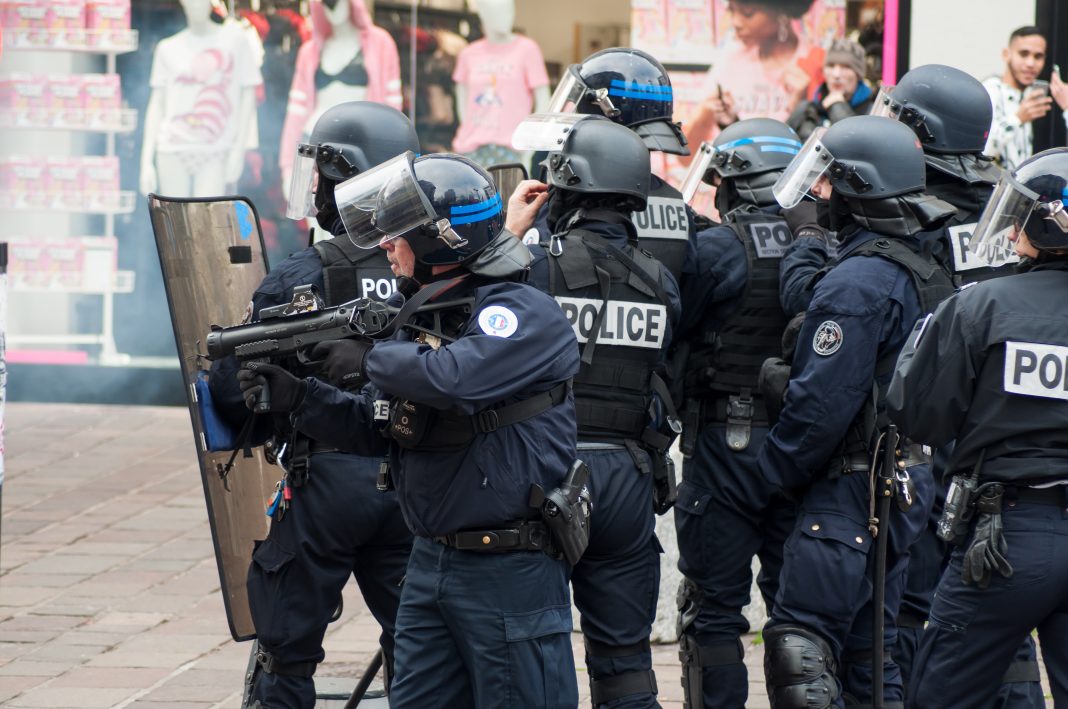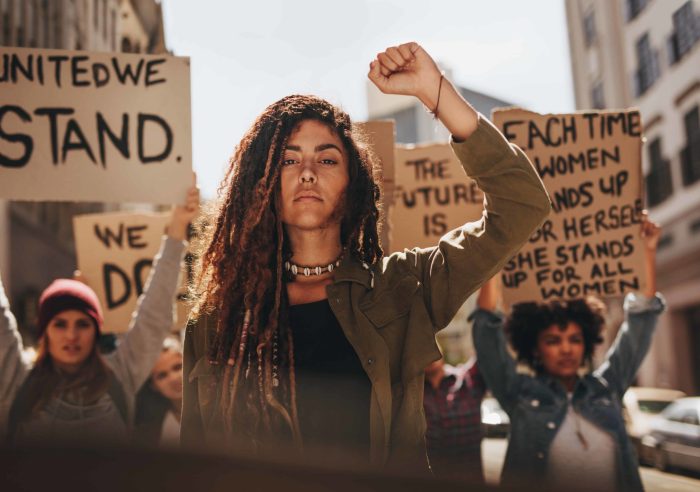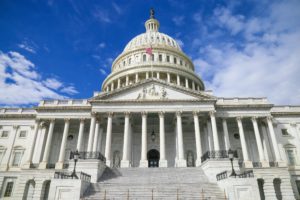Do non-citizens have the constitutional protection of due process of law, and if so what would happen if they’re arrested during the protests?
The Fifth Amendment states that shall be compelled in any criminal case to be a witness against himself, nor be deprived of life, liberty, or property, without due process of law.”
In the Reno v. Flores case, Justice Antonin Scalia wrote “it is well established that the Fifth Amendment entitles aliens to due process of law in deportation proceedings.”
The Fourteenth Amendment, through its extension by the Fifth Amendment, gives the right of equal protection under the laws of the United States to all foreign nationals who are present within the boundaries of the United States.
Am I protected if arrested during the protests?
However, in a decision by the United States Supreme Court, the requirement for strict scrutiny based upon a person’s legal status has been modified to a lower standard of scrutiny than strict scrutiny and that has become acceptable, dependent upon the question at hand. This, in layman terms, means that if the government wants to treat non-citizens in a discriminatory manner, the standard of constitutional review is lower than the one in which a citizen is involved.

What if you are arrested during the protests?
All of the above are only entitlements to constitutional protection. However, be aware that as a noncitizen (even a Legal Permanent Resident), if you are arrested during the protests, jailed, or charged with a crime, you may face immigration consequences including deportation – even if you have lived here for a long time and/or have legal status.
- If you arrested during the protests and you plead guilty or are convicted of a crime or offense, you may have immigration problems, including possible detention, deportation, and/or ineligibility to become an LPR or a citizen. Many felonies, misdemeanors, and even some “violations” or other non-criminal offenses can cause these problems. This may be true even if you don’t spend any time in jail or only pay a fine.
- If you arrested during the protests and you never pled guilty or admitted guilt to an offense and your charges were dismissed, the Department of Homeland Security generally cannot use those criminal charges to deport you or bar you from applying to become an LPR or citizen.
- If you arrested during the protests and you never pled guilty or admitted guilt to an offense and were given an “Adjournment in Contemplation of Dismissal,” then the Department of Homeland Security also generally cannot use those charges to deport you or bar you from applying to become an LPR or citizen once the case is dismissed.
- But until your case is actually dismissed, any contact with Department of Homeland Security officials (for example, if you travel outside the country, renew your green card, or apply to become an LPR or citizen) may cause problems because the government might treat your case as still “open” until the actual date of dismissal.
- If you were arrested during the protests and you do plead guilty after to an offense but are able to get your charges dismissed by completing a court-ordered program (for example, drug treatment), that will probably still be considered a “conviction” for immigration purposes and could lead to deportation. Generally, when you plead guilty or admit guilt in court and then are given some kind of sentence or court-ordered requirement, you can face negative immigration consequences.
- If your criminal case is still going on, you should speak with an immigration lawyer right away, ideally, before you accept any plea, go to trial, or are sentenced. Also, be sure to tell your criminal defense lawyer about the need to consult with an immigration lawyer. If you were arrested during the protests an immigration lawyer may be able to help you and your criminal defense lawyer figure out a plea or sentence or another outcome that will prevent negative immigration consequences in your case.
- If your criminal case is over, or you have old convictions, you should talk to an immigration lawyer about whether your pleas or convictions will create immigration problems.
Until you know the consequences of your criminal history, you should be aware that traveling outside the United States, renewing your green card, or applying to become an LPR or citizen could put you at risk of being placed into deportation proceedings. You should be very careful to obey all criminal laws since any further arrests or interactions with the government might also put you at risk of being put in deportation proceedings.
Know Your Rights if you were arrested during the protests
Now, during these protests, be very careful and know your rights. There have been reports that some states, like New York, charge protesters who were arrested during the protests with felony Riot which is a serious crime and can possibly have very serious immigration consequences. So all the noncitizens should be vigilant. While showing solidarity for this cause is highly important as a social movement, there are multiple precautions you can take to at least lower the chances of facing immigration consequences:
- You have the right to remain silent if an officer stops you. If you choose to do so, say so out loud. You do not need to tell the officer where you were born or how you came to the United States.
- Do not lie or provide false documents. You have the right to refuse to show ID documents showing what country you are from. NEVER falsely claim that you are a US citizen.
- You can refuse a search. If an officer stops you but doesn’t arrest you, you are allowed to say no to you or your belongings being searched. However, the officer is permitted to “pat you down” if he or she suspects you’re carrying a weapon
- A police officer cannot confiscate or search your electronic devices without a warrant.
- You have the right to talk to a lawyer. If you are taken into custody, you have the right to speak to a lawyer. If you don’t have one, you may ask the officer for a list of pro bono lawyers. Do not sign anything until your lawyer is present.
- You have the right to free speech. The First Amendment of the U.S. Constitution protects the rights of all persons, regardless of immigration status, to attend protests and marches.
- Keep a safe distance from police officers. If it appears the situation is getting heated, move away from that area.
- If you believe your rights have been violated. Write down everything you remember from the encounter, including what agency the officer works for and their patrol car and badge numbers. You may then file a complaint with the relevant agency.








 by Prozco®
by Prozco®